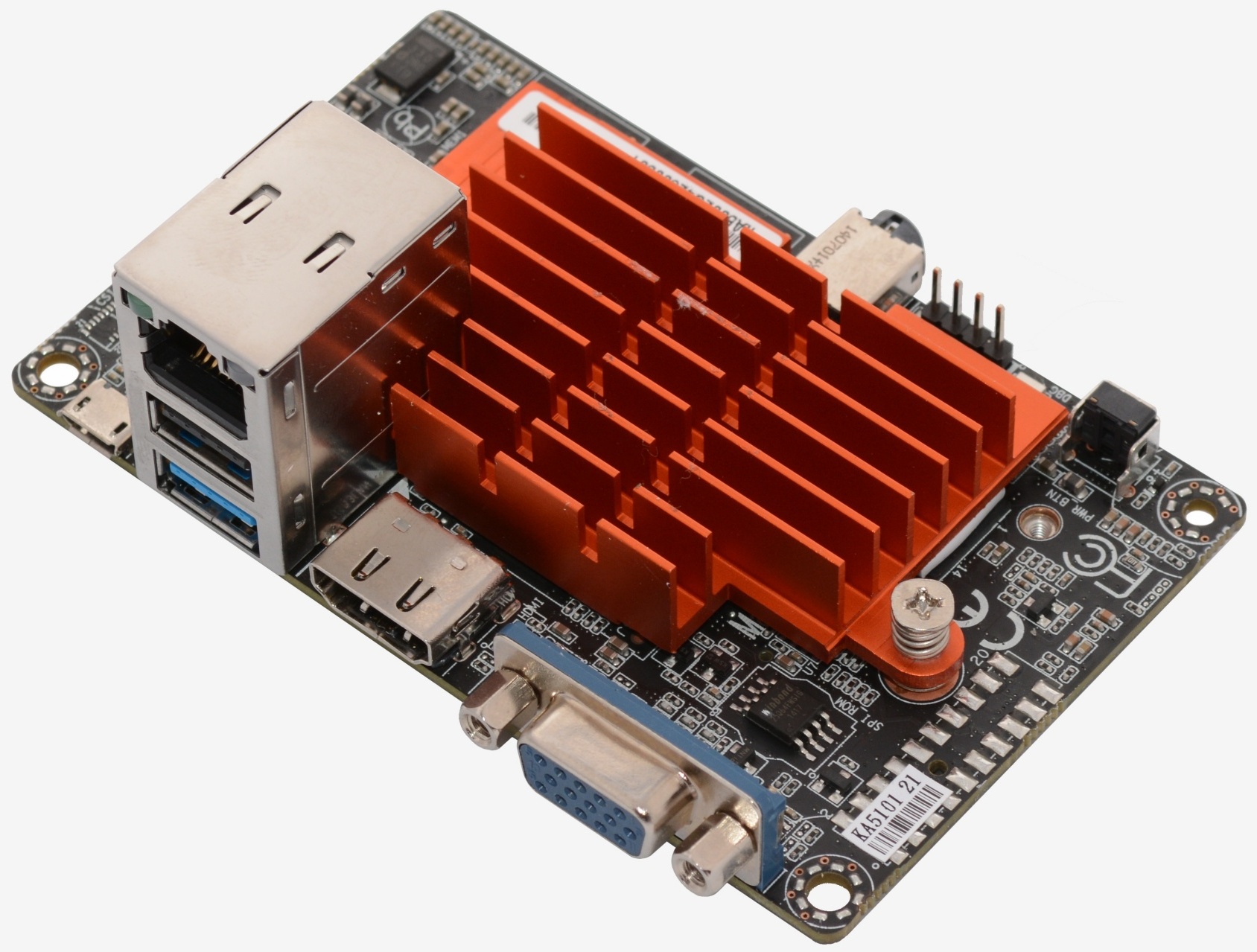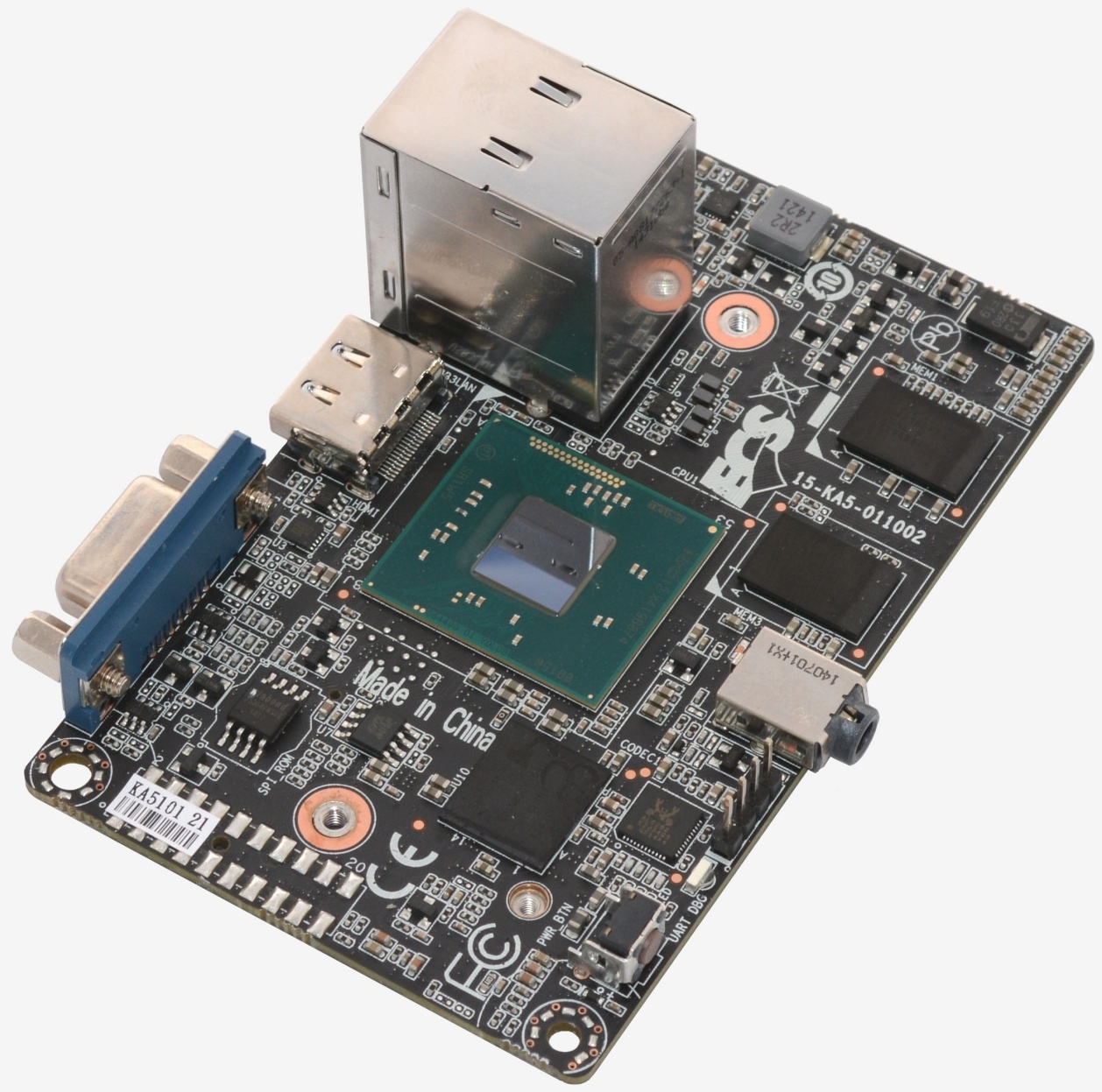Internal Hardware
Most prominent in the package is ECS' BAT-Mini motherboard – a Raspberry Pi-looking device that is powered by the Intel Celeron N2806 SoC. The CPU is designed to operate its two cores at 1.6GHz with a turbo frequency of 2.0GHz. There is no Hyper-Threading support here so the dual-core processor has just two threads to work with. The cores are backed by a 1MB L2 cache and support DDR3L-1066 memory.
The integrated Intel HD Graphics engine operates at between 313 and 765MHz and is based on the Ivy Bridge design with 4 execution units, while it supports DirectX 11, OpenGL 4.0, OpenGL ES 3.0 and OpenCL 1.1 (on Windows).
The Celeron N2806 features a maximum TDP (Thermal Design Power) rating of just 4.5w and a SDP (Scenario Design Power) rating of 2.5 watts.
In an effort to save on costs ECS has dumped the SATA support and instead connected the internal storage using the eMMC or SDIO (Secure Digital Input Output) port, while the second such port is used to create an M.2 socket for the Wi-Fi module.
The Celeron N2806 also offers four PCI Express 2.0 lanes though ECS has opted to use just one of them for the Realtek RTL8168/8111 PCI-E Gigabit Ethernet controller. The N2806 supports five USB ports but just two of them are being offered here.
As we mentioned previously the N2806 is passively cooled allowing the Liva to be completely silent. Cooling the N2806 is a small orange heatsink secured to the SoC using a pair of screws.
On the backside of the BAT-Mini motherboard there is a CMOS battery and M.2 (NGFF) socket which is used by the wireless card. Due to the fact that the M.2 socket is connected to a SDIO port and not a SATA port it cannot be used to house a secondary storage device. However, it only supports 30mm-long M.2 cards, so a secondary SSD would be out of the question anyway.
Speaking of storage, the 64GB model features a SanDisk eMMC SDIN8DE4-64GB chip and frankly this should really be the bare minimum for the Liva. The 32GB model shouldn't exist in our opinion as it's just way too small to be practical. Ideally, 64GB should be the base model with an option for a 128GB version and perhaps even bigger.
The Wi-Fi support is provided by an AzureWave AW-NB136NF card which uses the Broadcom BCM43142 combo chip. This is a dual-band 2.4GHz and 5GHz single steam solution which means we could achieve speeds as high as 150Mbps.





